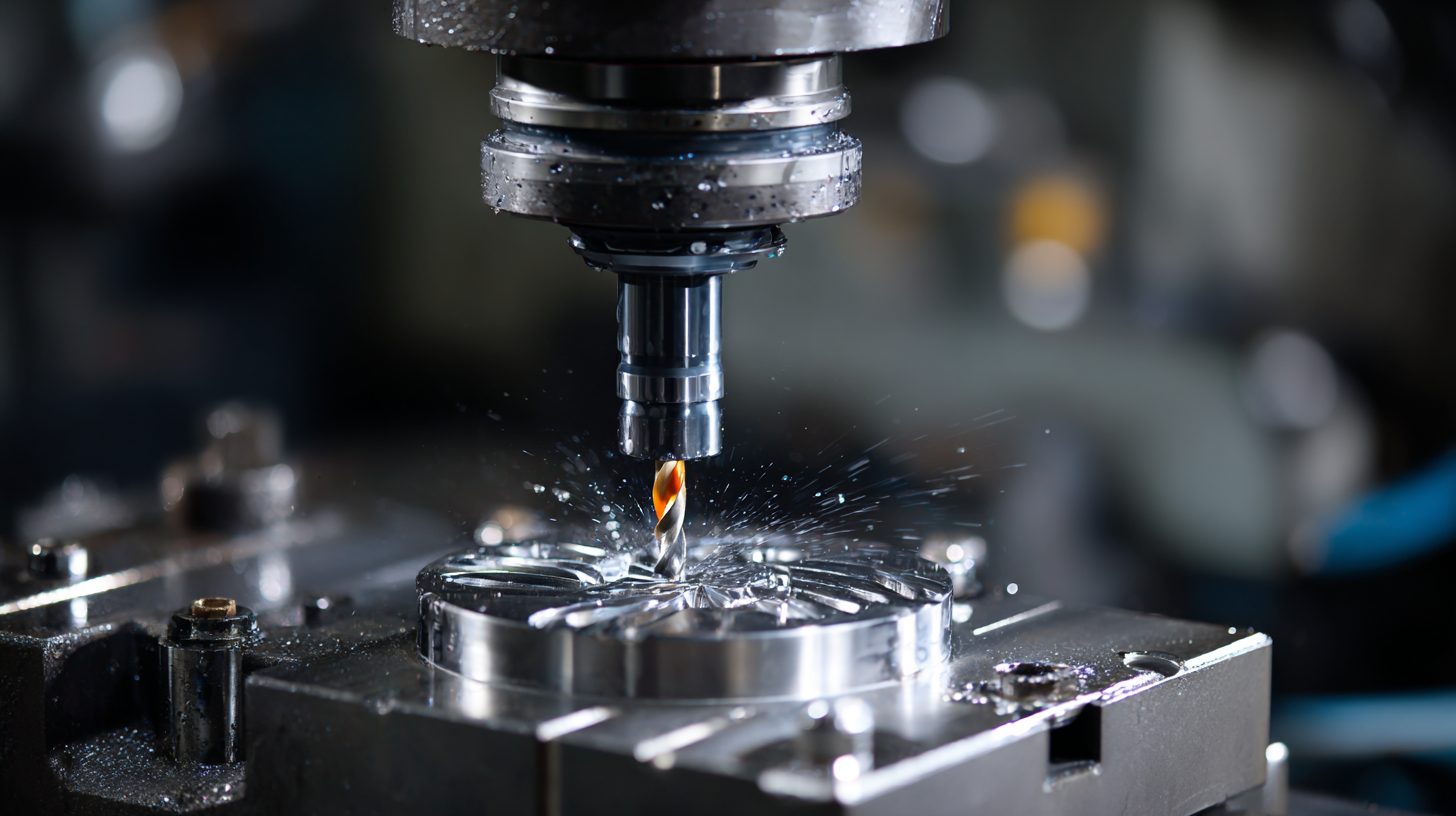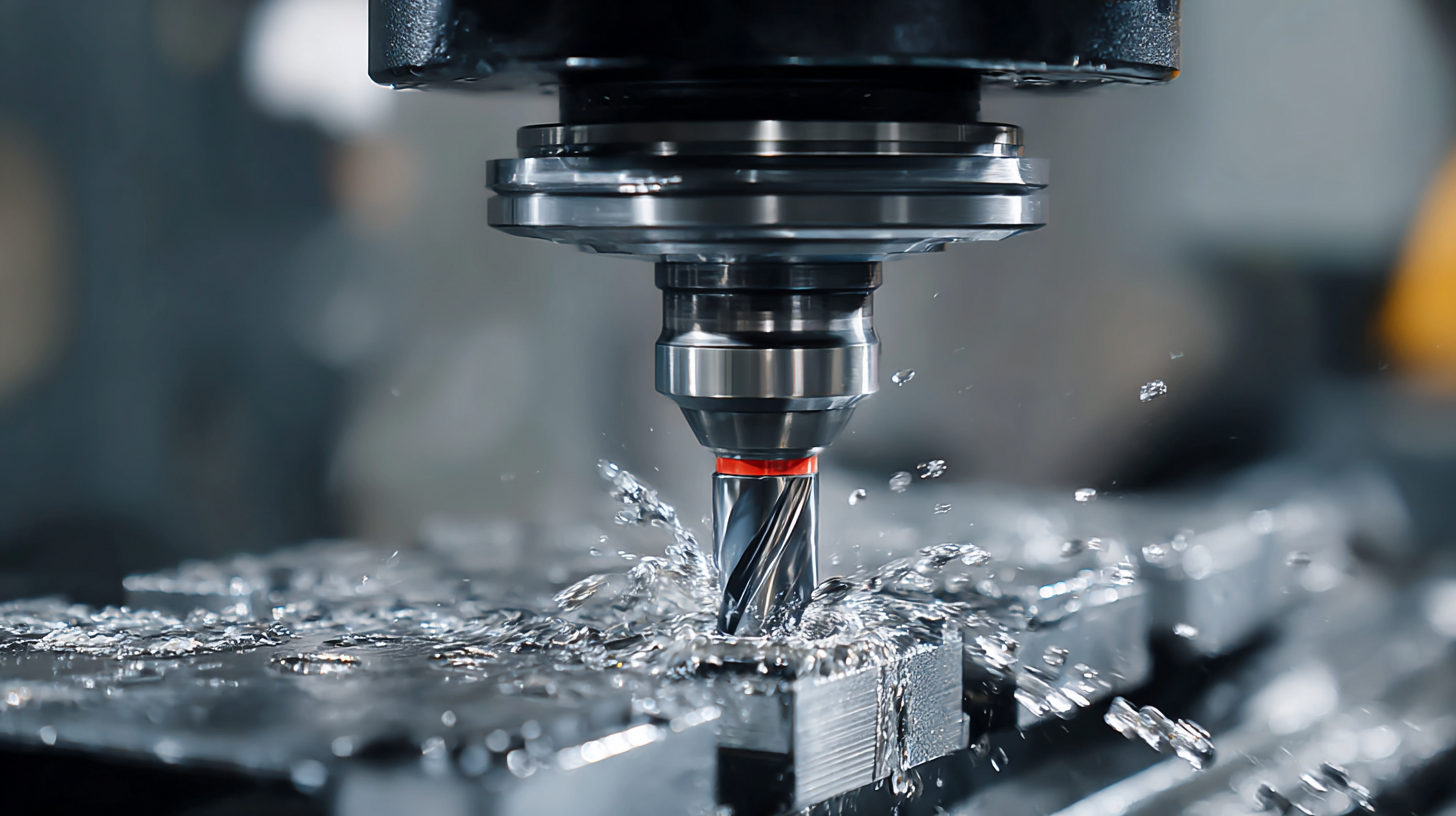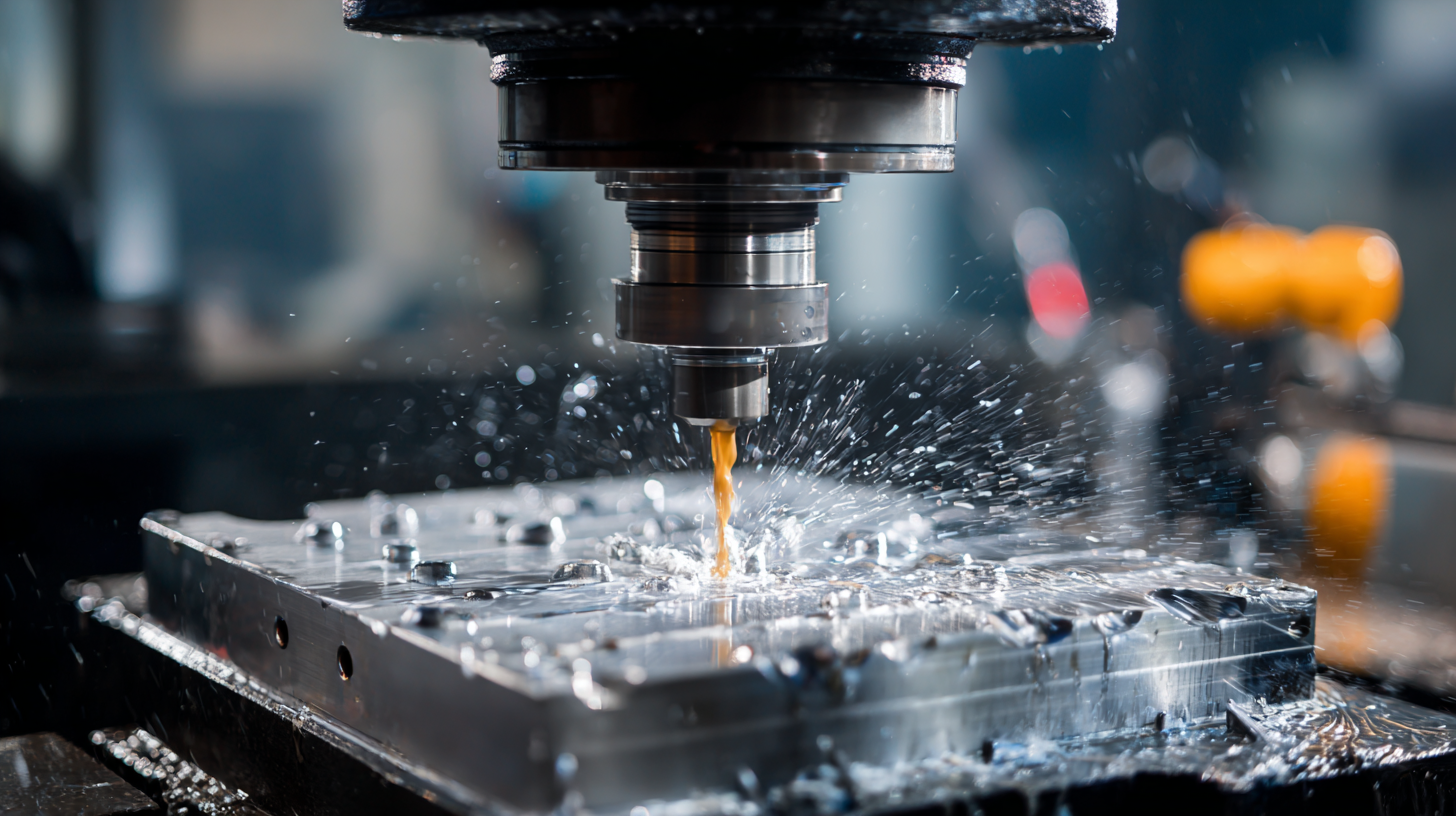Blog
Innovative Solutions for Global Sourcing of the Best Milling Machines
In the rapidly evolving landscape of manufacturing, the global sourcing of milling machines has become a vital focus for industries aiming to enhance efficiency and reduce operational costs. According to a recent report by MarketsandMarkets, the milling machine market is projected to reach $6.43 billion by 2025, driven by the increasing demand for precision in machining processes and the rise of advanced manufacturing technologies.

As businesses seek innovative solutions to stay competitive, understanding how to effectively source top-quality milling machines is essential. This blog aims to explore best practices and strategies for global sourcing, ensuring that companies select the most suitable machinery to meet their specific production needs and uphold quality standards in an increasingly competitive market.
Identifying Key Criteria for Selecting High-Quality Milling Machine Manufacturers
When selecting high-quality milling machine manufacturers, there are several key criteria that should be taken into consideration to ensure that businesses acquire the best equipment for their needs. First and foremost, the quality of the machines should be assessed, which includes not only their precision and durability but also the manufacturer's commitment to sustainable practices. With the rising importance of environmental sustainability in manufacturing, a supplier’s ability to minimize energy consumption and waste during production is crucial.
Moreover, the modular design of machine tools has emerged as a significant factor in modern manufacturing. This design allows for easier remanufacturing and upgrades by enabling manufacturers to interchange components efficiently. Companies should seek manufacturers who integrate this flexibility into their machines, facilitating maintenance and adapting to evolving production requirements. Additionally, assessing a manufacturer's technological advancements, such as the incorporation of CNC capabilities and collaborative robots, can provide insights into their capability to meet diverse industry demands and enhance productivity. By focusing on these criteria, businesses can ensure they partner with leading milling machine manufacturers that align with their operational goals.

Understanding the Role of Technology in Innovative Milling Solutions
The milling industry is undergoing a significant transformation, driven by advancements in technology such as artificial intelligence (AI) and the Internet of Things (IoT). These innovations are enhancing efficiency and precision in manufacturing processes, enabling companies to optimize their operations and reduce waste. According to a report by McKinsey, AI-enabled solutions can improve manufacturing productivity by up to 20%, which is pivotal for industries striving for competitive advantage in the global market.
In Parry Sound, a pilot project showcasing cutting-edge 3D road milling technology emphasizes the benefits of adopting innovative approaches in municipal infrastructure repairs. By implementing European solutions, municipalities can achieve efficient and cost-effective road resurfacing practices. This technology not only saves money but also minimizes environmental impact, aligning with sustainable development goals. Furthermore, the integration of IoT allows for real-time monitoring of infrastructure conditions, significantly improving maintenance response times and resource allocation. As cities around the world nurture ecosystems that foster this kind of innovation, it paves the way for a brighter, sustainable future in urban development.
Global Sourcing Trends in Milling Machines
This chart represents the innovation trends in global sourcing of milling machines, focusing on technology adoption rates over the years.
Evaluating Supplier Capabilities for Global Sourcing Efficiency
In the realm of global sourcing, evaluating supplier capabilities is critical to ensuring efficiency and quality in the procurement of milling machines. According to a report by Market Research Future, the global CNC milling machine market is projected to grow at a CAGR of 5.9% from 2021 to 2027, underscoring the importance of selecting suppliers who not only possess advanced technology but also can meet increasing demand sustainably. Suppliers are now required to showcase not only their manufacturing abilities but also their technological advancements and adaptability to industry changes.
Conducting a thorough supplier evaluation should include an analysis of their technical capabilities, production capacity, and quality assurance processes. A study by Deloitte found that 60% of procurement professionals highlight supplier innovation as a priority factor in their sourcing decisions. By assessing these capabilities, organizations can forge partnerships that not only fulfill immediate operational needs but also foster long-term growth and innovation. Utilizing metrics such as on-time delivery rates and defect rates can further enhance the evaluation process, ensuring that chosen suppliers align with the organization's strategic goals in a competitive global market.
Innovative Solutions for Global Sourcing of the Best Milling Machines - Evaluating Supplier Capabilities for Global Sourcing Efficiency
| Supplier Country | Machining Accuracy (µm) | Production Capacity (Units/Month) | Lead Time (Weeks) | Customer Support Rating (1-5) |
|---|---|---|---|---|
| Germany | 5 | 120 | 4 | 5 |
| Japan | 3 | 150 | 6 | 4 |
| United States | 4 | 100 | 5 | 5 |
| Taiwan | 6 | 200 | 3 | 4 |
| Italy | 7 | 80 | 8 | 3 |
Leveraging Industry Partnerships for Enhanced Milling Machine Procurement
In the ever-evolving landscape of milling machine procurement, industry partnerships play a crucial role in enhancing global sourcing strategies. By collaborating with key players across various sectors, businesses can leverage shared expertise and resources, ultimately improving their access to high-quality milling machines. This collective effort not only streamlines procurement processes but also fosters innovation, enabling firms to stay competitive in a market valued at billions.
When considering the market segmentation for milling machines, understanding the different product types—metal mill liners, rubber mill liners, composite mill liners, and mill shells—is essential. Each of these categories caters to distinct applications, including metal processing, mining and minerals, cement production, and power generation. Adaptations in technology and material science further complement these developments, offering tailored solutions that meet the specific demands of diverse industries. As partnerships in the milling machine sector strengthen, businesses can expect enhanced procurement capabilities, better pricing structures, and improved product quality, ultimately driving growth and efficiency in their operations.
Best Practices for Quality Assurance in Milling Machine Sourcing
 Quality assurance is a vital component when sourcing milling machines globally. As industries increasingly rely on precision machinery, implementing best practices for quality assurance can significantly impact production efficiency and product quality. One fundamental practice involves conducting thorough supplier evaluations. This process includes assessing their manufacturing capabilities, quality control processes, and certification standards. Establishing strong relationships with reliable suppliers helps to foster transparency and collaboration, ensuring that quality expectations are clearly communicated and met.
Quality assurance is a vital component when sourcing milling machines globally. As industries increasingly rely on precision machinery, implementing best practices for quality assurance can significantly impact production efficiency and product quality. One fundamental practice involves conducting thorough supplier evaluations. This process includes assessing their manufacturing capabilities, quality control processes, and certification standards. Establishing strong relationships with reliable suppliers helps to foster transparency and collaboration, ensuring that quality expectations are clearly communicated and met.
Another essential aspect of quality assurance in milling machine sourcing is regular inspection and testing. Buyers should integrate robust inspection protocols at various stages of the procurement process, including pre-shipment inspections and post-delivery evaluations. Utilizing advanced technologies such as 3D scanning and virtual audits can enhance the accuracy of these inspections, enabling businesses to detect potential issues early. Additionally, leveraging data analytics can identify performance trends and facilitate informed decision-making, ensuring that only the best milling machines are integrated into the production line. By embedding these best practices into their sourcing strategies, companies can enhance overall operational effectiveness and achieve competitive advantages in the market.